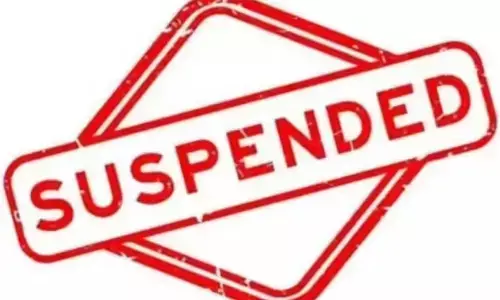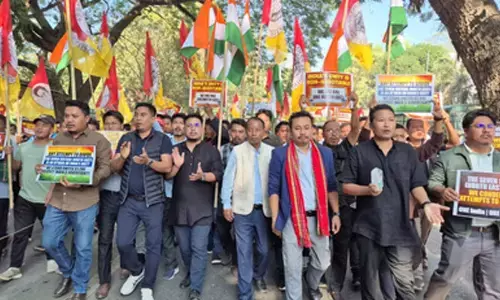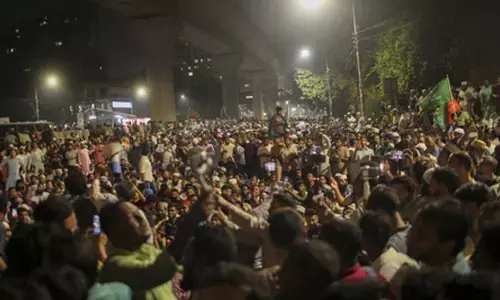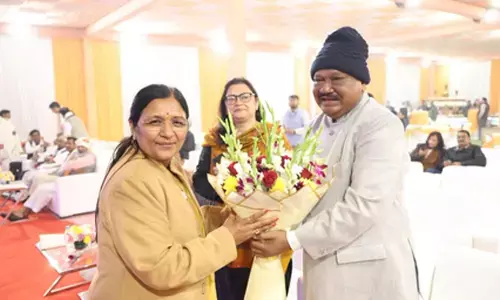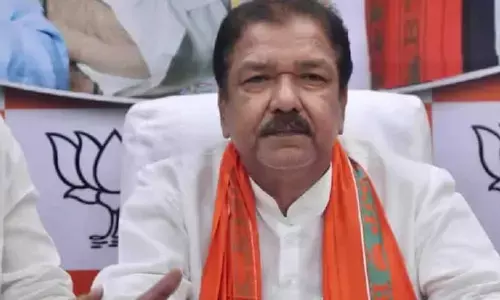Transgender bill highlight of social justice ministry in 2018
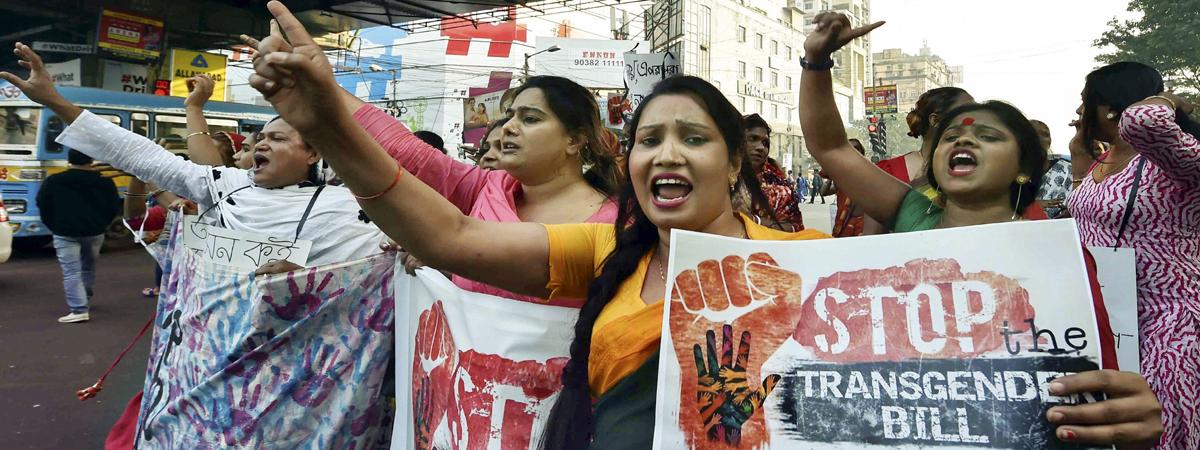
The passage of a longpending bill on transgender rights in the Lok Sabha towards the fag end of the year was the main highlight of 2018 for the Social Justice and Empowerment Ministry, which otherwise strove for implementation of its schemes
The passage of a long-pending bill on transgender rights in the Lok Sabha towards the fag end of the year was the main highlight of 2018 for the Social Justice and Empowerment Ministry, which otherwise strove for implementation of its schemes.
However, several representatives of the transgender community and activists dubbed the Transgender Persons (Protection of Rights) Bill as "regressive" and said it disregarded most recommendations of the Parliamentary Standing Committee. They said the bill was in stark "violation" of the fundamental rights of transgender persons enshrined in the Constitution as equal citizens.
On the flip side, the ministry grappled with the implementation of the Rights of Persons with Disabilities (RPWD) Act with only a third of the states having enacted the rules under the legislation, which was notified for enforcement in April 2016.
The crucial issue of sub-categorisation of the OBCs which had generated a lot of hope within the community with the government forming a panel for the purpose last year has not made much headway.
The National Drug Demand Reduction Policy to address the problem of drug and substance abuse in the country, and the review of the Maintenance and Welfare of Parents and Senior Citizens Act, 2007, to toughen provisions dealing with the abuse of old people and lay emphasis on good and affordable healthcare for them also didn't make much progress.
Some of the initiatives which stood out for the ministry in 2018 include launch of the country's first-of-its-kind dictionary aimed at bringing uniformity in sign languages used by hearing and speech impaired people across the nation. The dictionary comprise 3,000 Hindi and English words and their corresponding graphic representation of the signs which are used in daily life.
The ministry in 2018 also decided to continue its post-matric scholarship scheme for SC students for three years and an amount of Rs 3,000 crore was earmarked for the 2018-19 fiscal, approved the proposal for revision and continuation of National Fellowship Scheme for SC students and revised the central sector scholarship scheme of top class education for SC students to cover more institutions with increased number of slots (scholarships).
The Pradhan Mantri Adarsh Gram Yojana, which was launched during 2009-10 (pilot phase) and expanded during 2014-15 (Phase-I), has been further expanded and will cover 4484 SC majority villages (Phase-II). Among the activities that kept the ministry busy in 2018, 1456 camps across the country under the Scheme of Assistance to Disabled Persons for Purchase/Fitting of Aids and Appliances (ADIP) were organised and more than 2.40 lakh people with disabilities were provided aids and assistive devices in 2018.
Also, 3430 motorised tricycles were distributed and 287 cochlear implant surgeries were conducted in the year. Under the Accessible India Campaign (AIC), the disability division of the ministry made major strides in creating universal accessibility for disabled in built environment, transport, and Information & Communication Technology (ICT) ecosystem.
So far, access audit of 1,662 buildings in 50 cities has been completed by the auditors. All 34 international airports and 48 domestic airports in the country have been provided with accessible features such as ramps, accessible toilets, lifts with Braille symbols and auditory signals.
Out of 709 'A-1', 'A' and 'B' category railway stations, 670 railway stations have been provided with all short-term facilities and 639 railway stations have been provided with all long-term facilities. Also, 8.4 per cent public transport buses of 58 SRTUs (State/UT wise total bus fleet and buses in public sector) have been provided overall accessibility. Out of 100 central government ministries/departments, websites of 94 ministries/departments have been made accessible so far.
department has already initiated Unique Disability Identification project with a view to create national database for PwDs, to issue unique disability ID (UDID) card along with disability certificate to everyone. In this regard, a web-based software was developed and was being shared with all the state government and UTs, through training of their personnel.
Once the project covers all persons with disabilities, UDID Card will be made mandatory for availing various governments benefits. So far, 463 districts of 27 states/UTs have generated 11.20 lakh e-UDID Cards. An MoU was signed between Australia and India for cooperation in disability sector on November 22 during the visit of President to Australia.
By Payal Banerjee








